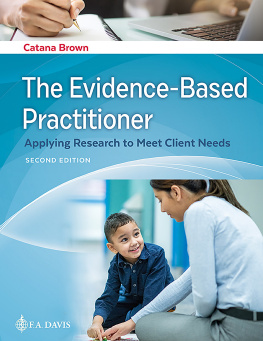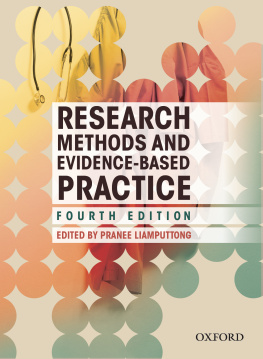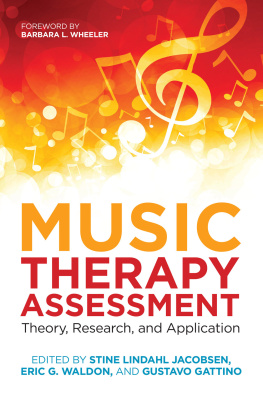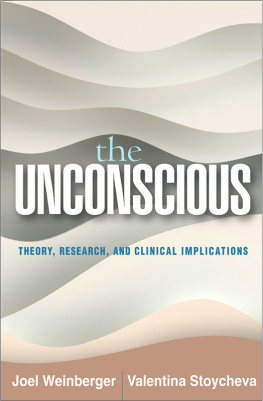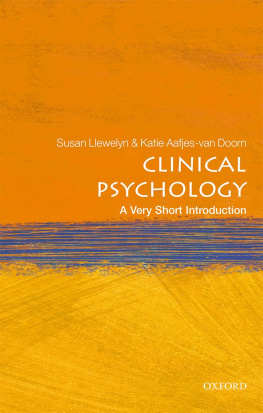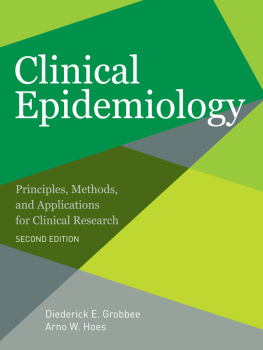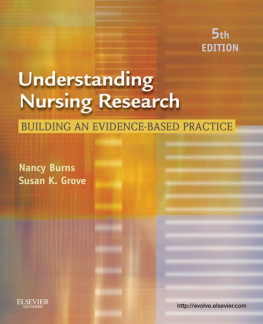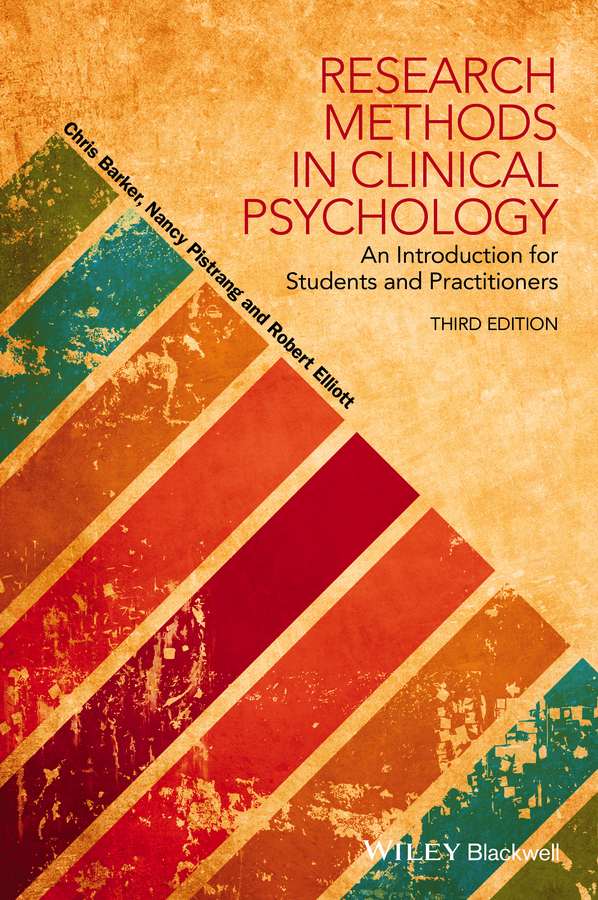
Table of Contents
List of Tables
- Chapter 02
- Chapter 03
- Chapter 04
- Chapter 05
- Chapter 07
- Chapter 08
- Chapter 10
List of Illustrations
- Chapter 02
- Chapter 06
- Chapter 09
- Chapter 10
- Chapter 11
- Chapter 12
Guide
Pages
Research Methods in Clinical Psychology
An Introduction for Students and Practitioners
Third Edition
Chris Barker and Nancy Pistrang
University College London
and
Robert Elliott
University of Strathclyde
This edition first published 2016
2016 John Wiley & Sons, Ltd.
Registered Office
John Wiley & Sons, Ltd, The Atrium, Southern Gate, Chichester, West Sussex, PO19 8SQ, UK
Editorial Offices
350 Main Street, Malden, MA 02148-5020, USA
9600 Garsington Road, Oxford, OX4 2DQ, UK
The Atrium, Southern Gate, Chichester, West Sussex, PO19 8SQ, UK
For details of our global editorial offices, for customer services, and for information about how to apply for permission to reuse the copyright material in this book please see our website at www.wiley.com/wiley-blackwell.
The right of Chris Barker, Nancy Pistrang, and Robert Elliott to be identified as the authors of this work has been asserted in accordance with the UK Copyright, Designs and Patents Act 1988.
All rights reserved. No part of this publication may be reproduced, stored in a retrieval system, or transmitted, in any form or by any means, electronic, mechanical, photocopying, recording or otherwise, except as permitted by the UK Copyright, Designs and Patents Act 1988, without the prior permission of the publisher.
Wiley also publishes its books in a variety of electronic formats. Some content that appears in print may not be available in electronic books.
Designations used by companies to distinguish their products are often claimed as trademarks. All brand names and product names used in this book are trade names, service marks, trademarks or registered trademarks of their respective owners. The publisher is not associated with any product or vendor mentioned in this book.
Limit of Liability/Disclaimer of Warranty: While the publisher and authors have used their best efforts in preparing this book, they make no representations or warranties with respect to the accuracy or completeness of the contents of this book and specifically disclaim any implied warranties of merchantability or fitness for a particular purpose. It is sold on the understanding that the publisher is not engaged in rendering professional services and neither the publisher nor the author shall be liable for damages arising herefrom. If professional advice or other expert assistance is required, the services of a competent professional should be sought.
Library of Congress Cataloging-in-Publication Data
Barker, Chris, 1948
Research methods in clinical psychology : an introduction for students and practitioners / Chris Barker and Nancy Pistrang, University College London and Robert Elliott, University of Strathclyde. Third edition.
pagescm
Includes bibliographical references and index.
ISBN 978-1-118-77320-8 (paperback)
I.Pistrang, Nancy.II.Elliott, Robert, 1950III.Title.
RC467.8.B37 2016
616.89dc23
2015019386
A catalogue record for this book is available from the British Library.
Cover image: Vintage background Nik Merkulov / Shutterstock
Preface to the Third Edition
The first edition of this book came out more than 20 years ago, and the second more than 10. A lot has gone on during that 20-year time span, both in the books subject matter and in our own professional lives. When we wrote the first edition, we were junior academics, and the research methods literature was much smaller and easier to master than it is now. We learned an enormous amount in the course of writing that first edition text; as has frequently been observed (originally by the physicist Frank Oppenheimer, according to Wikipedia), the best way to learn something is to teach it. As our careers have progressed, so has the methodological literature, which seems to have outgrown our own capacity (and probably anyone elses) to keep up with it. Such is its volume and complexity that it has seemed as big a task to produce this third edition from the second as it did producing the first from scratch. However, we have once again relished getting to grips with the new ideas ourselves and attempting to communicate them clearly to our readers.
Since the previous edition, there have been major changes in how information is accessed and processed, and in how research is conceptualized and conducted. Some of the most important additions or changes in this edition are systematic review methods and literature-searching methods (see ).
When we began updating the second edition to produce this one, we initially thought that we would completely revamp the references, as several had endured since the first edition and were written before many of our readers would have been born. We had a general out with the old, in with the new, lets clear out the attic attitude. However, as the writing progressed, it quickly became apparent that many of the old references actually hold up rather well, several being classic papers that all clinical psychologists need to be aware of. So, while we have updated many of the citations, the end result represents what we hope is a judicious mix of ancient and modern.
The choice of title led to some debate among the authors and publishers. The first edition, which was entitled Research Methods in Clinical and Counseling Psychology, had its genesis in our teaching on clinical and counseling psychology courses. The second edition, entitled Research Methods in Clinical Psychology, focused on clinical psychologists as a primary readership, with counseling, health, educational, and community psychologists also being very much in our minds. The book should really be called something like Research Methods in Clinical Psychology and Allied Professions, but that is too clunky and unfocused. In our time, we have taught research methods to students and professionals in many other allied fields, including health, community, counseling, and educational psychology, psychiatry, speech therapy, and nursing. We want this text to be accessible to all of these audiences and more. We hope that potential readers from other disciplines will judge the book by the content not just the titlewe intend it to be useful for not just clinical psychologists, but also for a broad range of mental health disciplines.
We have once again tried to make the text reader-friendly by having frequent bullet-point summaries of the important points in boxes, and a chapter summary and suggested reading at the end of each chapter. In this edition, we have added questions for self-reflection, also at the end of each chapter. Personal preferences are an often unacknowledged influence on the research that one conducts, and the questions for reflection are designed to help readers explore what they think and feel about the various approaches and issues that we have described in each chapter. We have also, as with the last edition, uploaded supplementary material for readers and instructors onto the books website.
A few matters of grammar and style are worth noting. We have generally preferred vernacular to supposedly purist forms of expression. Thus, following recent trends, we have usually used the colloquial they to indicate a single person of unspecified gender, rather than the awkward sounding he or she. Data is treated as a collective noun either in the singular or the plural, as sense dictates, as in common speech. We are fully aware that it is a plural noun in Latin, but like agenda, also a Latin plural, it is frequently used in the singular in spoken English. We have also not hesitated to boldly split infinitives: the supposed rule prohibiting this practice now seems antiquated.
Next page

